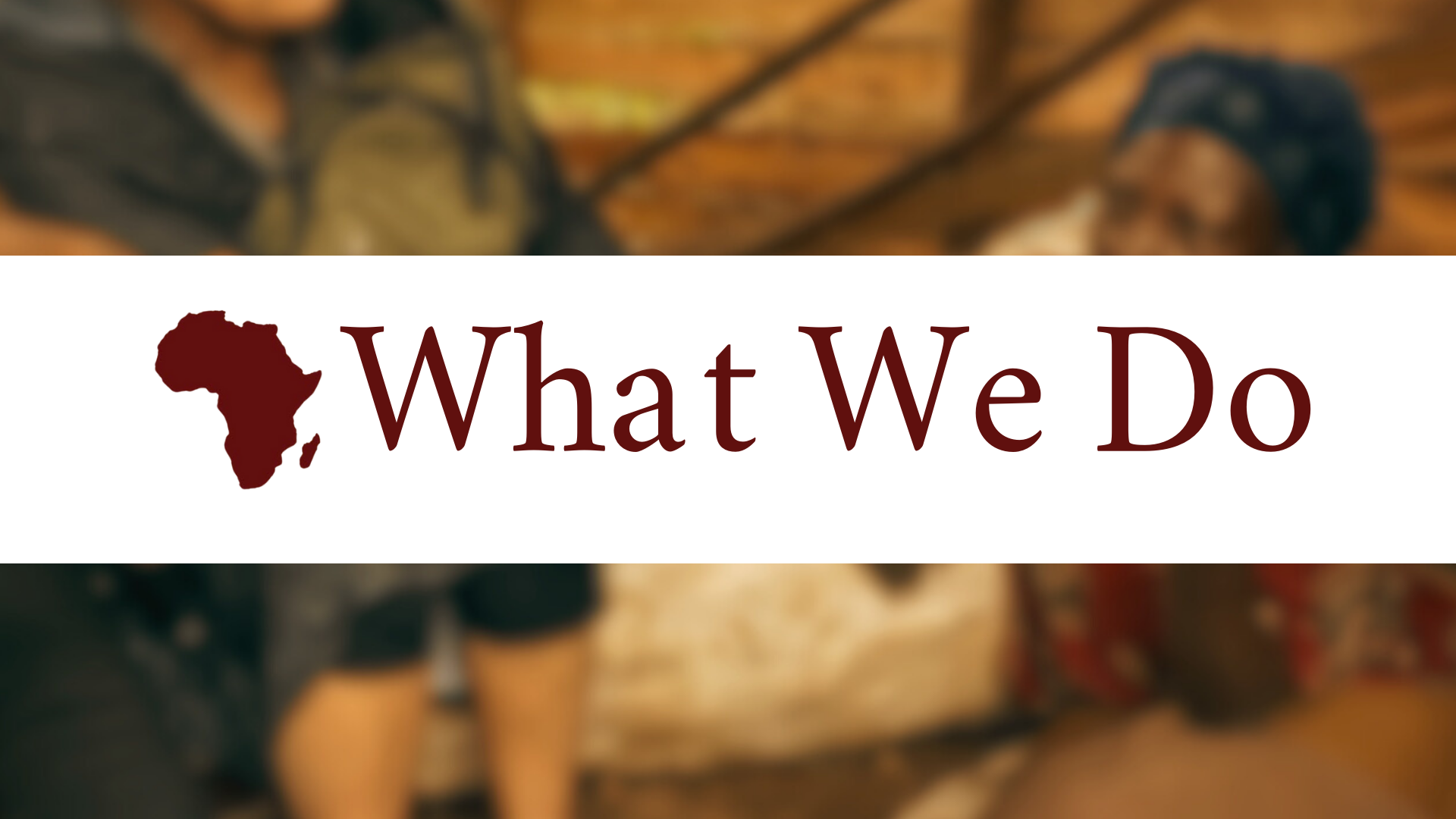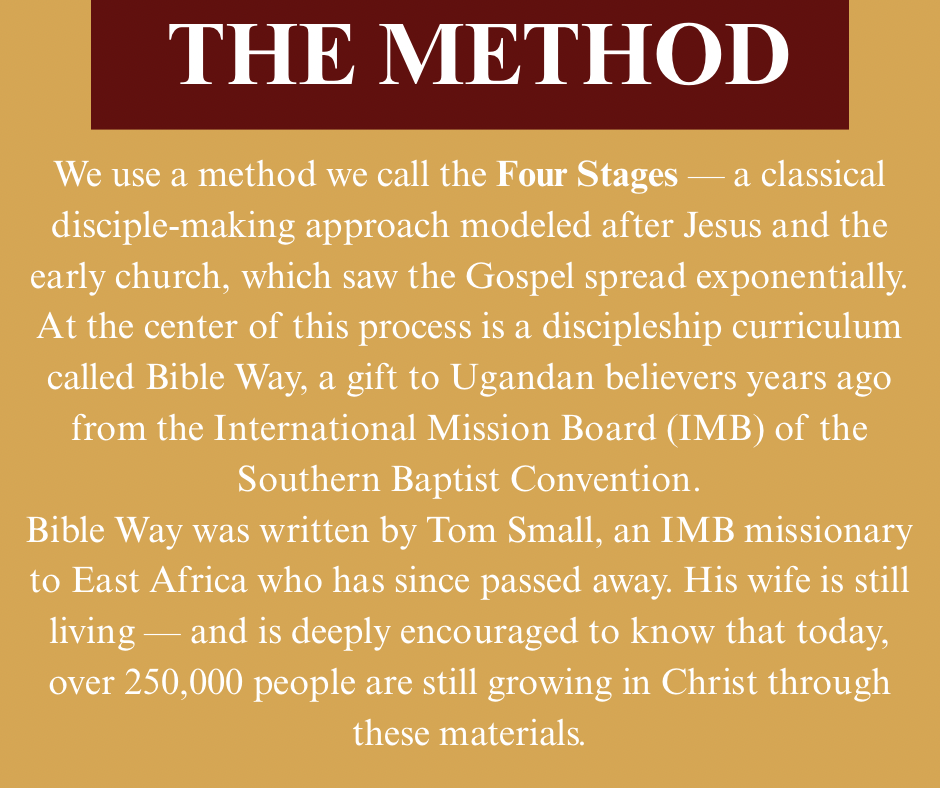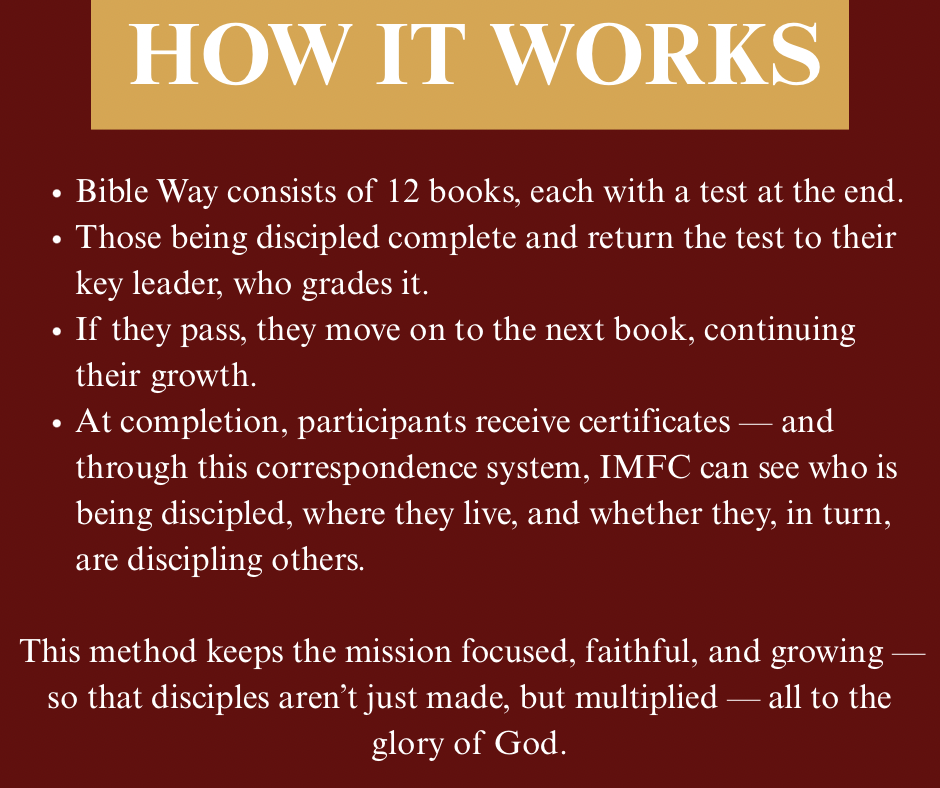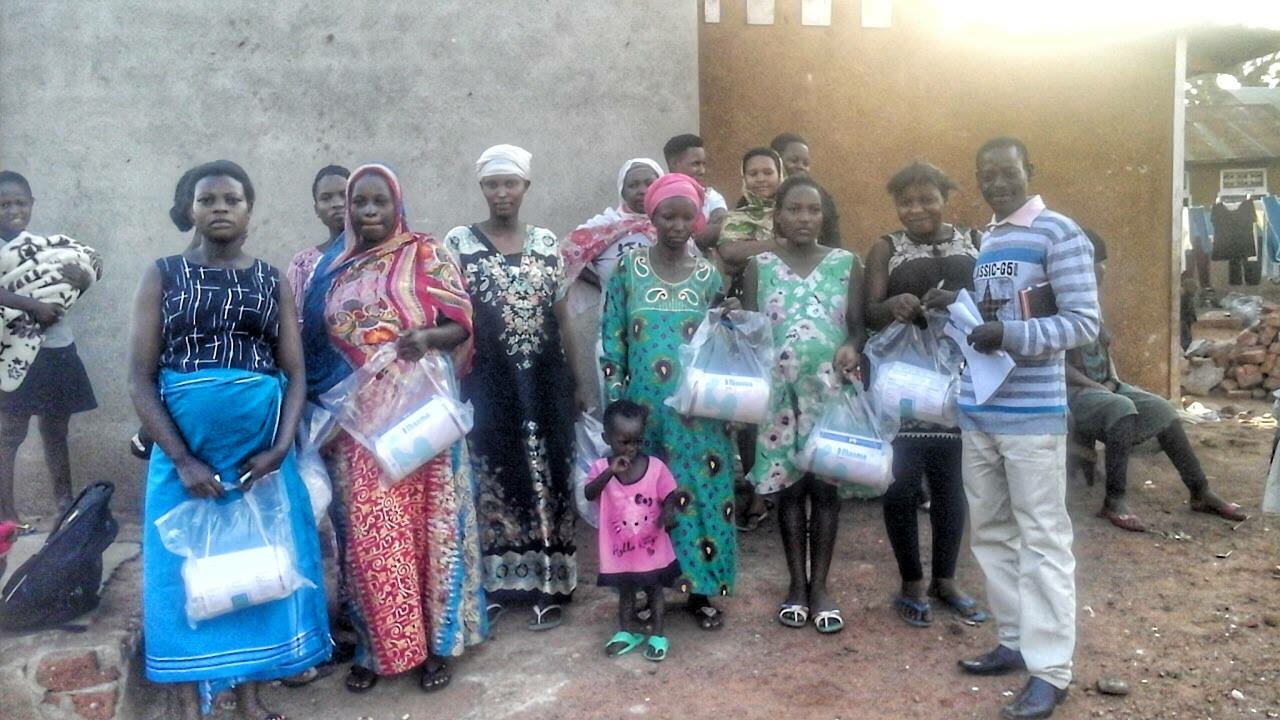Discipleship
The heart of IMFC’s mission is simple but powerful: making disciples who make more disciples — answering Jesus’ prayer in Matthew 9, “Send out the workers.”
Another way IMFC ministers is by using the hand gospel: a simple, memorable tool that helps people easily understand and share the message of salvation through Christ.
The deepest desire of IMFC is to share the hope of the gospel and make disciples of all nations. This commitment often overflows into meeting real, everyday needs. Here are the ways that this heart for discipleship has taken shape on the mission field.
MANNA
Transforming lives through practical help and the hope of the Gospel
With your prayers and financial support, IMFC’s MANNA programs in Uganda help families build lasting income and experience life change.
A six-month free food program designed to help families save the money they would have spent on food.
Those savings become start-up funds for small businesses.
Participants receive training on how to start and manage these businesses.
When the food program ends, families are left with an established, legal income source.
It’s a hand-up, not a handout—impacting around 3,000 people.
Listening to the Gospel isn’t required to join, but it is shared, people are discipled, and lives are transformed—bringing glory to God.
Your support makes this possible—changing futures and glorifying God along the way.













